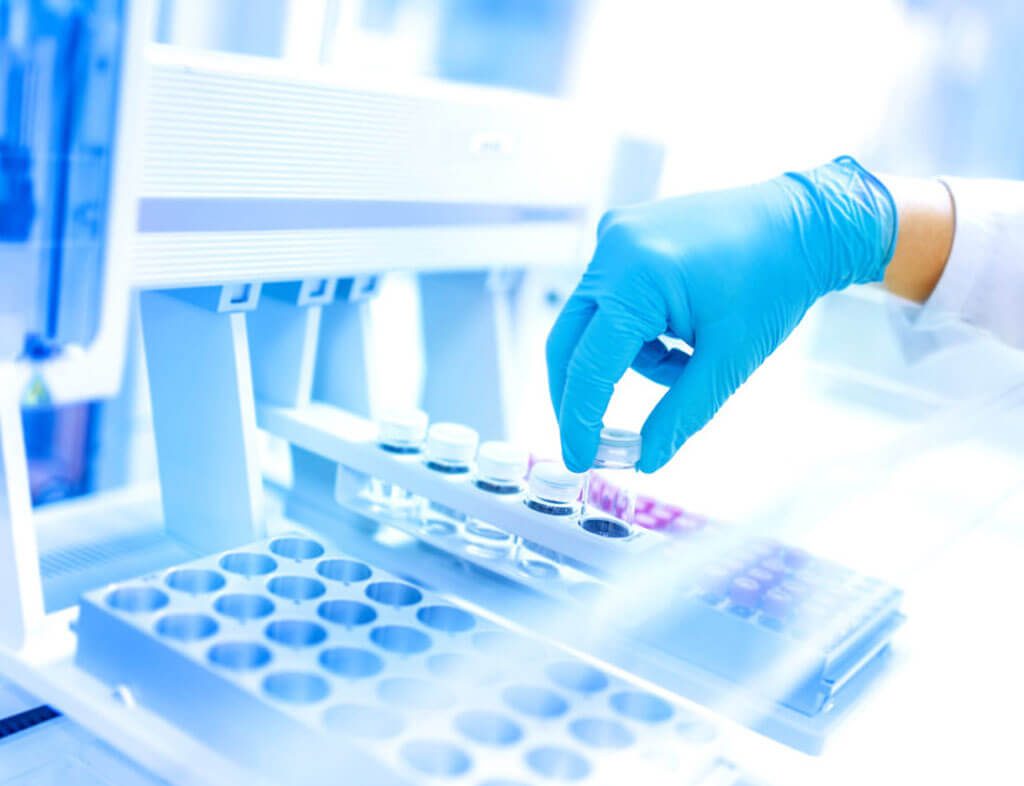Adipose-derived mesenchymal stem cell (ADMSC) exosomes have emerged as a potential treatment option for hair loss, owing to their regenerative and immunomodulatory properties. Several studies have suggested that ADMSC exosomes may promote hair growth by acting on various cellular and molecular processes involved in hair follicle biology.
Exosome treatment for hair loss
Exosome technologies
Possible mechanisms through which ADMSC exosomes could promote hair growth include:
Activation of hair follicle stem cells
Exosomes derived from ADMSCs may stimulate the activation and proliferation of hair follicle stem cells, leading to the initiation of the anagen (growth) phase of the hair cycle.
Promotion of angiogenesis
ADMSC exosomes can promote the formation of new blood vessels (angiogenesis), which can increase blood flow and nutrient supply to the hair follicles, supporting hair growth.
Modulation of immune responses
ADMSC exosomes possess immunomodulatory properties that can help regulate local immune responses, reducing inflammation and creating a more favorable environment for hair growth.
Delivery of growth factors and signaling molecules
ADMSC exosomes contain various proteins, growth factors, and microRNAs that can influence cellular processes related to hair growth, such as cell proliferation, differentiation, and survival.
Mode of action in hair loss
Exosomes derived from mesenchymal stem cells (MSCs) have been studied as a potential therapeutic option for hair loss. The mode of action of MSC-derived exosomes for hair loss likely involves several mechanisms, including:
Promotion of hair follicle growth:
MSC-derived exosomes contain growth factors and other molecules that can promote hair follicle growth, leading to the regrowth of hair.
Stimulation of angiogenesis
MSC-derived exosomes contain angiogenic growth factors and other molecules that can promote the growth of new blood vessels, which are essential for the nourishment of hair follicles.
Regulation of the hair growth cycle:
MSC-derived exosomes can regulate the hair growth cycle, which can help to promote the growth of new hair and prevent hair loss.
Anti-inflammatory effects:
MSC-derived exosomes contain anti-inflammatory molecules that can help to reduce inflammation in the scalp, which can contribute to hair loss.
Protection of hair follicle stem cells
MSC-derived exosomes contain molecules that can protect hair follicle stem cells from damage, which can help to promote hair regrowth.
Overall, the mode of action of MSC-derived exosomes for hair loss likely involves a combination of these mechanisms, and may depend on factors such as the underlying cause of the hair loss, the age of the patient, and the route and frequency of exosome administration.
Indications for hair loss treatment with Exosome therapy
Mesenchymal stem cell (MSC)-derived exosomes have shown potential in treating hair loss due to their regenerative, anti-inflammatory, and angiogenic properties. Ideal patients for MSC-derived exosome treatment in hair loss may include those who:
Experience androgenetic alopecia
Patients with androgenetic alopecia, also known as male pattern baldness or female pattern hair loss, may benefit from MSC-derived exosome treatment, as it can promote hair follicle regeneration and prolong the anagen (growth) phase of the hair cycle.
Have alopecia areata
Patients with alopecia areata, an autoimmune disorder causing hair loss in patches, may find MSC-derived exosome treatment helpful in reducing inflammation, modulating the immune response, and promoting hair regrowth.
Seek a non-surgical option
Patients looking for a non-surgical alternative to address their hair loss, as opposed to hair transplantation or scalp reduction surgery, may consider MSC-derived exosome treatment.
Have tried conventional treatments without success
Patients who have tried conventional hair loss treatments, such as minoxidil, finasteride, or corticosteroid injections, without satisfactory results may consider MSC-derived exosome treatment as an alternative option.
Desire a more natural approach
Patients seeking a more natural and biocompatible treatment option for stretch marks and scars may find MSC-derived exosome treatment suitable, as it utilizes the regenerative capabilities of the body’s own cells.
Are in overall good health:
Patients should be in good general health, with no active infections, uncontrolled medical conditions, or contraindications to treatment. Good health increases the likelihood of successful treatment and reduces potential risks and complications.
It’s important to note that while MSC-derived exosome treatment may be suitable for some patients with hair loss, the decision should be made on an individual basis after thorough evaluation and consultation with a qualified medical professional. They can assess the patient’s specific needs, expectations, and medical history to determine the most appropriate treatment approach.

EXOHAIR Procedure
Exosomes are extracted from human mesenchymal stem cells and thoroughly tested for quality and quantity. Containing valuable lipids, messenger RNA, cytokines, and proteins, our bank of Exosomes will be administered accordingly with the Specialist recommendation.
With its specialized laboratories housing all the equipment needed to carry out any Exosome treatment successfully, Bioscience is the only clinic with the ability to help patients achieve the desired results. Before any procedure, extensive steps are taken to ensure that all products undergo a strict screening process that certifies sterility, safety for use, and endotoxin testing.
Request Exosome treatment for hair loss
Request a consultation now on EXOHAIR – Exosome treatment for hair loss, the new frontier in regenerative medicine. Email info@bioinst.com or fill out the form below to be contacted by one of our experts.
(*) Required fields

